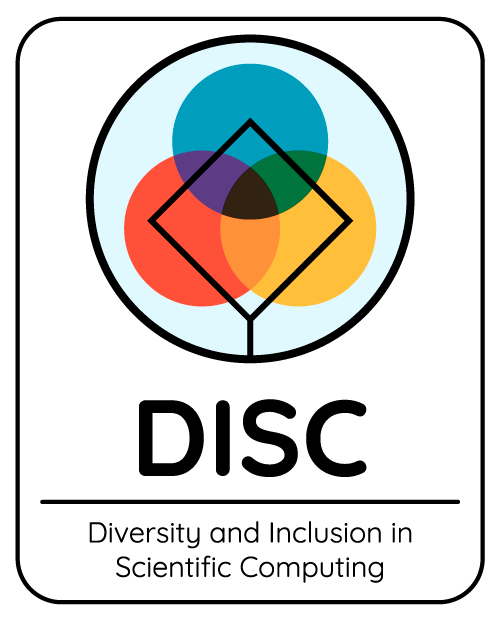his blog series summarizes the projects developed and executed by participants in the inaugural Diversity & Inclusion in Scientific Computing (DISC) Unconference, held November 29-30, 2017 in conjunction with PyData NYC.
The DISC Unconference mission is to equip participants to take action to help create a more diverse and inclusive open source scientific computing community. The Unconference strives to generate practical and scalable solutions, identify best practices, and share knowledge that welcomes, encourages, and fosters participation in our community by people of all backgrounds and identities. The DISC Unconference empowers change-makers to make change in their communities.
This is a contributed post by participants in the 2017 Diversity and Inclusion in Scientific Computing (DISC) Unconference.


“Now a silly one!” Participants at the inaugural DISC Unconference
How to Start the Diversity and Inclusion Conversation at your Workplace
Project Team:
GitHub repo:
At the Diversity and Inclusion in Scientific Computing (DISC) Unconference, our group focused on ways to start and maintain conversations about diversity and inclusion in the workplace. Our product for the two-day unconference was an online Conversation Quick Start Kit and a set of D&I Big Talk cards.
The Conversation Quick Start Kit was built from a variety of online resources, as well as input from other attendees at the unconference. There were three main questions framing the discussion:
-
How can I have a conversation with a coworker/friend about offensive comments without making them defensive?
-
When is the right time to have that conversation and how do I create a safe space for them to be willing to see my perspective?
-
After the starting conversation, how do I ensure that it progresses organically?
The D&I Big Talk cards were inspired by Kalina Silverman’s site Make Big Talk. They are organized into three different levels, with the intention of being used over a series of small group or one-on-one meetings, progressing from level 1 to level 3. If you have suggestions for additional questions, please submit them here.
Overall the DISC Unconference provided a fantastic venue for connecting with others who are also actively working to promote diversity and inclusion in the scientific computing community.
If you tweet about this post please be sure to tag @NumFOCUS and @carissa_shafto with the hashtag #DISC.
—
All projects generated at the DISC Unconference are open to the community for input. NumFOCUS invites all who are interested to get involved! Repos for each project are on the NumFOCUS GitHub.
